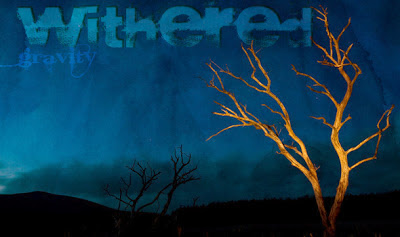The Most Difficult Parable Ever
Theologian N.T. Wright finds the parable of the fig tree to be quite strange. He says, “Jesus' warning in Luke 13 is at once amplified by this almost humorous, yet in fact
quite sinister, parable of the fig tree in the vineyard.”
And it is sinister.
It’s a hard pill to take.
Jesus' parable goes like this:
A man has as fig tree planted in
his vineyard. One day he comes out
looking for fruit on it, but there are no figs.
He says to the vineyard keeper, “Look at this tree. For three years, I've come hoping to find
some fresh figs, but what do I find? Nothing.
So just go ahead and cut it down.
Why waste the space with a fruitless tree?”
The vineyard keeper replies,
“Give it another chance, sir. Give me
one more years working with it. I’ll
cultivate the soil and heap on some manure to fertilize it. If it surprises us and bears fruit next year,
that will be great, but if not, then we’ll cut it down.” (Luke 13:5-9, The Voice)
But how is it sinister? Like the fruitless tree, we Christians run the risk of
being cut down. Sin withers us down to
where we produce little to eventually no fruit.
And when this happens, and we allow our sins to fester, we have nothing to offer the world. It's at this point that Jesus says we might as well pack it up or get cut down. Apparently God needs fig
trees to produce. God needs churches and
Christians who are nurturing and sustaining life -- not the opposite.
But despite the sinister nature, Luke 13 does tell us that nutrition is possible; we just have learn to rightly interpret the parable of the fig tree first.
First, Jesus could be seen as the vineyard-owner. He has been coming to the Lord’s garden,
seeking the fruit of repentance, throughout his ministry – which is probably
why the verse alludes to the owner making the trip for three years. So far, apart from a very few followers, who
are themselves still quite muddled, Jesus has found none: no repentance. He is prepared, then to give Israel, and
particularly Jerusalem (which is seen as the fig tree in this case), the
Temple, and the ruling priests one more chance.
If they still refuse, their doom will be sealed. (N.T. Wright, Luke for Everybody, p 164)
The other way to see this story, and the one I like the
best, is that Jesus is not the vineyard-owner but rather the gardener. God is the one who has come to this garden
seeking fruit from the vines of the fig tree.
God is the one in search of much fruit.
Jesus is the gardener, the servant who is now trying, as the owner’s
patience wears thin, to dig around and put manure, to inject some life and
health into the old plant before the sentence is passed.
Either way you see this parable the result is the same:
“If we don’t bear fruit, then we will be cut down.”
Here's what I take from Luke 13 and the parable of the fig tree: We must be people who prune our own lives,
spiritualities and worship practices back . . . shedding ourselves of false idols,
sinful attitudes and behaviors. We must not become a withering tree that was
once full of life but is now all dried up.
God takes these trees and cuts them down.
This is our challenge.
We may repent so we can continue on.




Comments